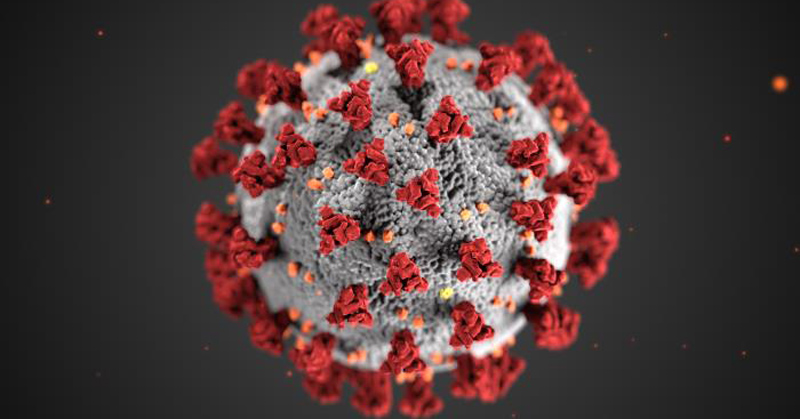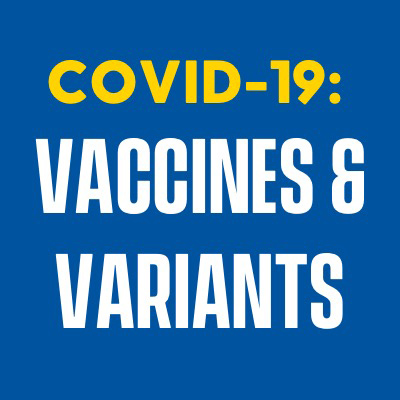


COVID-19 vaccines, variants
Illustrations by Lukas Emory and courtesy of the Alissa Eckert and Dan Higgins of the Centers for Disease Control and Prevention March 08, 2021
UD experts to provide updates on science and policy on March 10
Experts from the University of Delaware will join the director of the state Division of Public Health on Wednesday, March 10, for an online discussion of the coronavirus (COVID-19) pandemic, particularly the science of vaccines and variants of the virus, efforts to mitigate the crisis and the outlook for daily life.
The webinar, “COVID-19: Vaccines and Variants,” will be held from 4-5:40 p.m. It is free and open to the public, with registration at this website.
The program, which will feature brief updates from eight speakers and two question-and-answer sessions, is designed to answer important and timely questions, organizers say. Those include: How will vaccines make a difference in our everyday life? What mixture of vaccinations, masks, social distancing, quarantining, testing and contact tracing do we need to prioritize? How do variants evolve, and what difference will their evolution connote for continuing vigilance?

Dr. Karyl Rattay, director of the Delaware Division of Public Health, will begin the presentations with an update on the state’s response to the pandemic and on the current situation, including work with the school system, higher education and other partners.
Her talk will be followed by speakers from UD representing a variety of scientific disciplines:
Norman Wagner, Unidel Robert L. Pigford Chair in Chemical and Biomolecular Engineering and professor of physics and astronomy and of biomechanics and movement science, who has developed a new model focused on student interactions to predict and prevent the spread of COVID on campus;
Calvin Keeler, interim dean of the College of Agriculture and Natural Resources (CANR), professor of molecular virology in the Department of Animal and Food Sciences, and a professor of entomology and wildlife ecology and of biological sciences;
Esther Biswas, chairperson and professor in the Department of Medical and Molecular Sciences, whose research investigates genetic variation and molecular genetics in relation to human health and disease;
Eric Wommack, deputy dean of CANR and professor of environmental microbiology in the Department of Plant and Soil Sciences, who with colleague Kali Kniel launched the new Center for Environmental and Wastewater-based Epidemiological Research, testing wastewater samples to forecast coronavirus outbreaks;
John Jungck, professor of biological sciences and of mathematical sciences, whose research interests include molecular evolution and mathematical biology education;
Jennifer Horney, founding director of the Epidemiology Program, professor of epidemiology and a core faculty member of the Disaster Research Center, whose research focuses on the impacts of natural disasters on public health; and
Carolyn Haines, director of UD’s Nurse Managed Primary Care Center, a family nurse practitioner and a full-time primary care provider with many years of emergency department experience.
The speakers will answer questions midway through the program and again at the end.
John A. Pelesko, dean of the College of Arts and Sciences, will introduce the program, and Provost Robin Morgan will make closing remarks.
Contact Us
Have a UDaily story idea?
Contact us at ocm@udel.edu
Members of the press
Contact us at 302-831-NEWS or visit the Media Relations website

